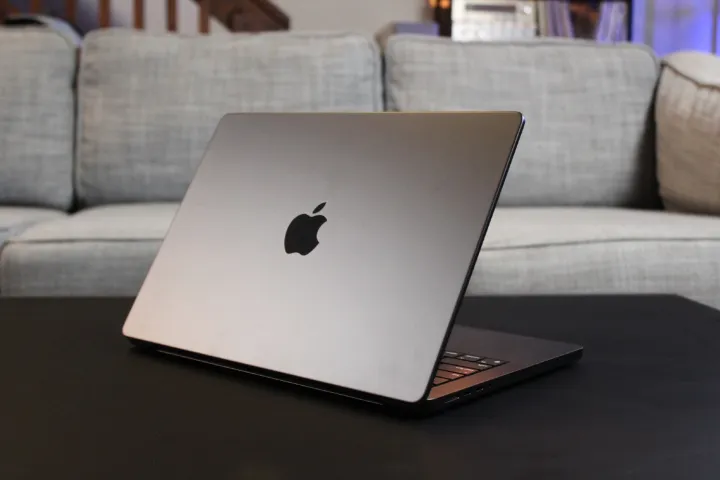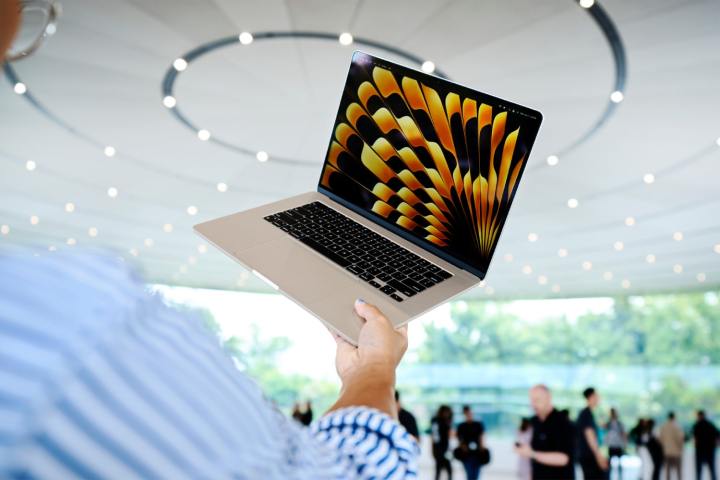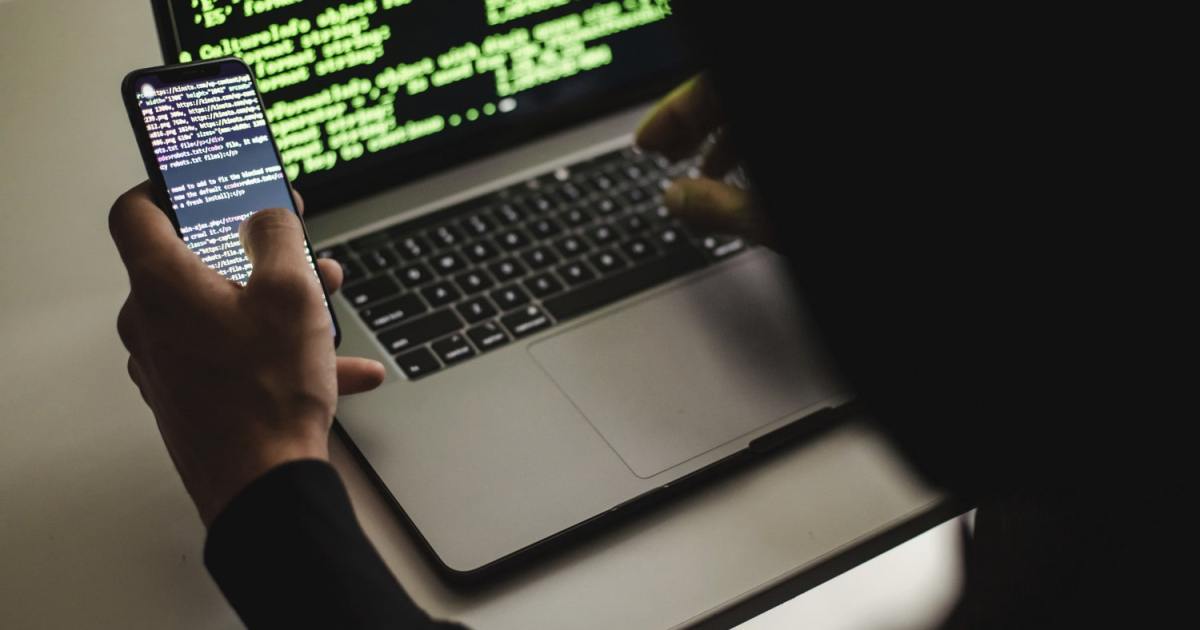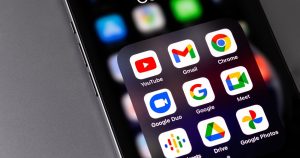
It’s an age-old query amongst Apple lovers: Does your Mac want antivirus device? Historically, the prevalent resolution has been disagree — Macs have robust integrated protections, the argument is going, and antivirus apps can doubtlessly decelerate your pc. Finally, the trade-off didn’t appear to be virtue it.
However is that also true lately? Upcoming all, Macs are increasingly becoming a target of cybercriminals, with some Mac malware traces supposedly even being created by means of public states. In that more or less condition, has the sport modified?
To determine, we approached a raft of professionals, from antivirus professionals to safety bloggers, to determine the place issues rise at the moment and whether or not your Mac wishes that residue layer of coverage.
‘Insufficient to protect Macs’

Even with out an antivirus app, Macs aren’t defenseless. They arrive with XProtect, which makes use of signatures to acknowledge and thwart malware, and Gatekeeper, which prevents untrustworthy device from working if it hasn’t been signed by means of Apple. Mac apps also are sandboxed, because of this they (theoretically) can simplest do what they’re intended to and are restrained from gaining access to limited portions of the running device.
That each one seems like a accumulation of armor, however it’s now not a treatment to each and every unmarried Mac malware condition. So, the bulky query is that this: Are those safeguards plethora, or do Macs want standalone antivirus device as neatly?
You received’t be stunned to listen to antivirus builders say that virus scanners are a should, however their justifications assemble sense. For example, Michael Covington, VP of portfolio technique at Mac safety and control company Jamf, argues that “XProtect is signature-based and is only as good as the last update to its malware definitions. This means that XProtect may not detect new malware families or effectively identify older malware variants that have been altered just enough to fool the detection rules.”

Joshua Lengthy, important safety analyst at Mac antivirus outfit Intego, consents that XProtect is “insufficient to protect Macs from today’s malware.”
Lengthy additionally says that Gatekeeper is in a similar fashion restricted in {that a} person can merely divergence it with a few easy clicks. If any person has been tricked into doing that by means of a smart piece of social engineering, Gatekeeper is powerless to give protection to them.
Howard Oakley, a macOS developer, freelance journalist and blogger who continuously posts deep dives into Mac security topics, takes a relatively extra nuanced means. He believes that the desire for antivirus device “depends entirely on the user’s assessment of threat and risk.”
He continues: “For a conscientious user on the lookout for phishing attacks, who doesn’t engage in high-risk activities, I believe that macOS Sonoma does now provide good protection, and additional third-party products shouldn’t be necessary.” In the end, this is dependent upon Mac customers keeping their devices up to date and now not turning off remarkable options like System Integrity Protection (and resignation them off completely), Oakley says.
That touches on a topic alluded to by means of Lengthy: the individual controlling the Mac, in lieu than the Mac itself. As Covington says, “the Mac is only as secure as the user sitting at the keyboard … if the user falls victim to a dangerous or unsafe link, like a phishing attack, there are no built-in protections to prevent web threats from putting the user, device, or organization at risk. Adding tools that prevent web-based threats from reaching the device is critical in this connected age.”
Taxing your device

On listening to the ones phrases, on the other hand, you may neatly be skeptical. Upcoming all, antivirus apps have a name for burdening Macs and tanking their efficiency. Is the trade-off virtue it?
“Most release versions of anti-malware products are pretty good,” Oakley says. “If you let them loose to perform a scan of your entire boot disk, then naturally things get slow for a while.” Year he famous that he’d as soon as had a Mac turn out to be virtually unusable when a macOS replace despatched his antivirus app haywire (with the issues vanishing as soon as the virus scanner used to be up to date), Oakley concedes that he doesn’t assume it’s a ordinary condition.
He additionally emphasizes the use of having device from “Mac specialists with good Mac engineers.” On the other hand, he issues out that some family want cross-platform device that works on Mac and PC (particularly if their employer mandates it), that means issues aren’t relatively so easy.
For Covington, “Users should never have to trade performance and reliability for security, but it’s not uncommon for some solutions that were initially designed for another operating system to cause problems when they’re ported to macOS … Developers that build for Apple first know to build using Apple-exposed frameworks that ensure key features are achieved without disrupting end user experience.”
Lengthy, on the other hand, believes that the speculation of antivirus apps slowing unwell Macs is known as a relic of the occasion.
“It’s largely a myth that antivirus software slows down Macs,” he says. “This may have been more of a concern 15 to 20 years ago, but it’s not something that Mac users need to be concerned about today — especially if they’re using antivirus software developed by a Mac-focused company.”
If you will get an antivirus app for your Mac, the professionals we stated to stated it must be one constructed by means of a Mac-focused building workforce, in lieu than person who builds Mac antivirus apps as an afterthought to their Home windows opposite numbers. So long as you significance a plague scanner this is designed for macOS by means of family who perceive the running device, you shouldn’t have a condition.
The Apple silicon moment

What has modified in recent times, and why are Macs turning into extra of a goal for hackers and malware writers? Has Apple’s transfer to its personal ARM-based processors made a too much?
Neither Covington nor Lengthy could be drawn on whether or not Apple Silicon has made Macs kind of book, despite the fact that Lengthy did word one explicit factor: tide Macs’ talent to run ancient Intel-based apps the use of Rosetta 2, which will doubtlessly permit ancient malware to realize fresh hour on a contemporary Apple pc. On the other hand, he provides that this isn’t a particularly worthy vulnerability since “today’s Mac malware developers typically design their malware to run natively on both Intel Macs and Apple silicon Macs.”
For Oakley, on the other hand, there are lots of safety advantages to Apple silicon. He issues out that “Because of Secure Boot, the boot process of Apple silicon Macs is far more secure than Intel EFI … Recovery from malware is also far better with Apple silicon Macs, as you can wipe and perform a full restore in DFU mode, which is as deep cleaning as possible, and even takes care of malware that could have penetrated the firmware.”
For now, Apple silicon Macs have any other benefit, Oakley says: “Most malware developers know Intel well, and few know ARM.”
Is the App Pack safeguard?

Over the occasion month or so, complaints have consistently been raised in regards to the App Pack and Apple’s insurance policies order it. However in lieu of top commissions, the professionals we stated to have been fascinated by one thing else: the propensity for bad apps to assemble it occasion Apple’s reviewers and into the App Pack.
Lewis Duke, blackmail knowledge manage at antivirus developer Trend Micro, argues that, “Although we have seen an increase in malicious applications found in Apple’s App Store, it is still generally safer than other app stores.” On the other hand, he sounded a assurance of warning that “Apple’s vetting process is one of the better ones out there, but it’s certainly not infallible.”
Lengthy, on the other hand, used to be scathing about Apple’s evaluate procedure. “Apple’s app review team frequently lets dangerous apps into the App Store,” he stated. That is problematic for macOS customers, he says, as a result of, “By design, no Apple-provided tool or macOS component protects against harmful App Store apps. If a malicious app has already slipped past Apple’s review team, then any macOS built-in protection will recognize it as safe, even if it really isn’t.”
The implication from Lengthy is that an antivirus app is a should as a result of it could catch wicked apps that slip thru Apple’s hands. The collection of nefarious apps that do that (in comparison to the overall people of safeguard apps) could be low, however the thought is it’s higher to be safeguard than sorry.
Extra than simply antivirus

Given the security you get — and the recognized gaps in Mac’s armor — it may be a good suggestion to install an antivirus app on your Mac to strengthen your defenses in case one thing makes it occasion Apple’s personal programs. Nevertheless it’s now not so simple as simply booting up the primary antivirus app you spot and resignation it at that. There are alternative issues to keep in mind.
As Oakley alluded to, you want to grasp your personal movements. Should you incline towards the riskier facet of items — “if someone engages in crypto trading or downloads ‘warez’ or software from dubious sites,” as he places it — upcoming you want greater than what macOS supplies. However irrespective of whether or not that sounds such as you, everybody must be cautious on-line, and that implies refraining from the use of pirated device, downloading invisible electronic mail attachments, and like as. That unloved can backup.
However even supposing you are taking plethora of precautions, it simplest takes one slipup (or one wicked app getting occasion Apple’s app evaluate workforce and onto the App Pack) to spoil your past. That’s the place an antivirus app can doubtlessly have your again. So long as you get one made by means of builders that perceive Apple’s programs and understand how to write down Mac-first device, the possibilities of a plague scanner tanking your Mac’s efficiency are reasonably low.
Do this — and guard a wholesome degree of ordinary sense on-line — and also you must be capable to secure maximum virtual nasties safely at arm’s field.
Editors’ Suggestions
-
The 6 best ways Macs work with your other Apple devices -
Here’s why 2024 is going to be a slow year for the Mac -
Update your Apple devices now to fix these dangerous exploits -
In the age of ChatGPT, Macs are under malware assault -
This critical exploit could let hackers bypass your Mac’s defenses




